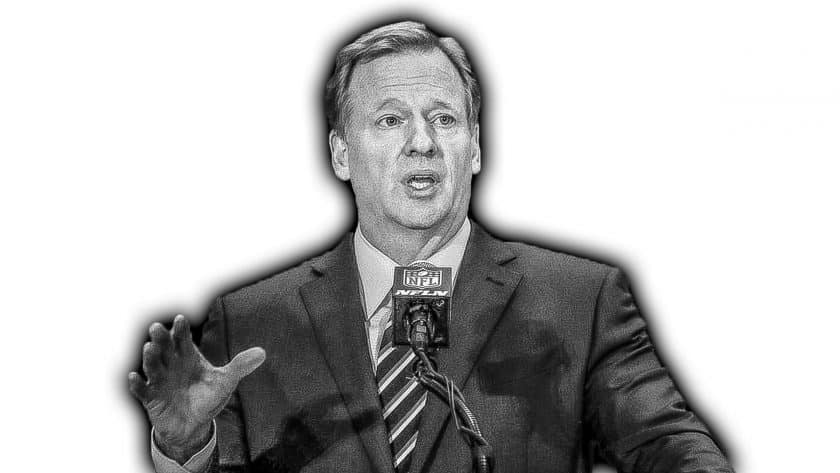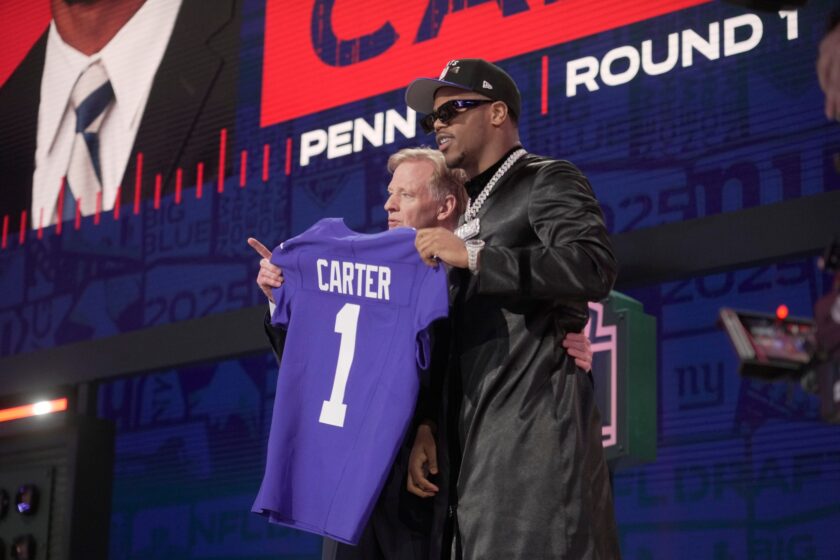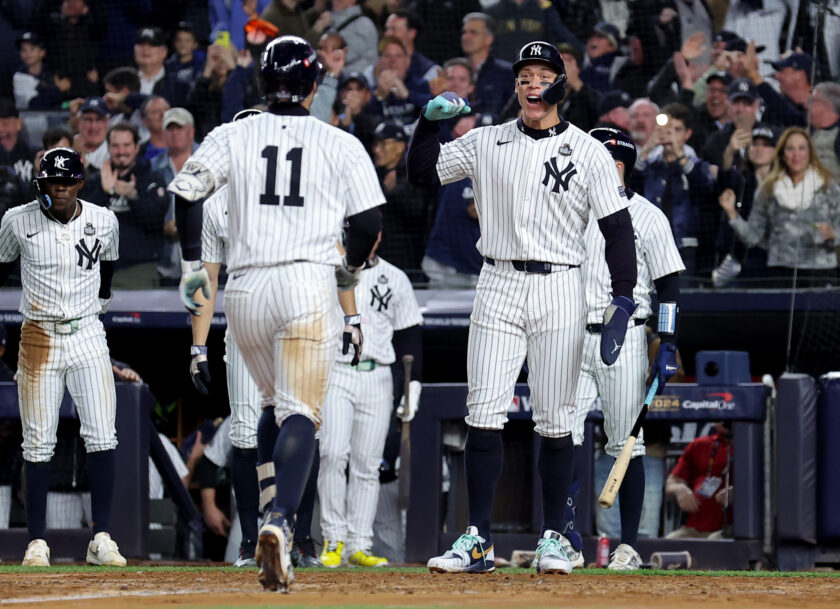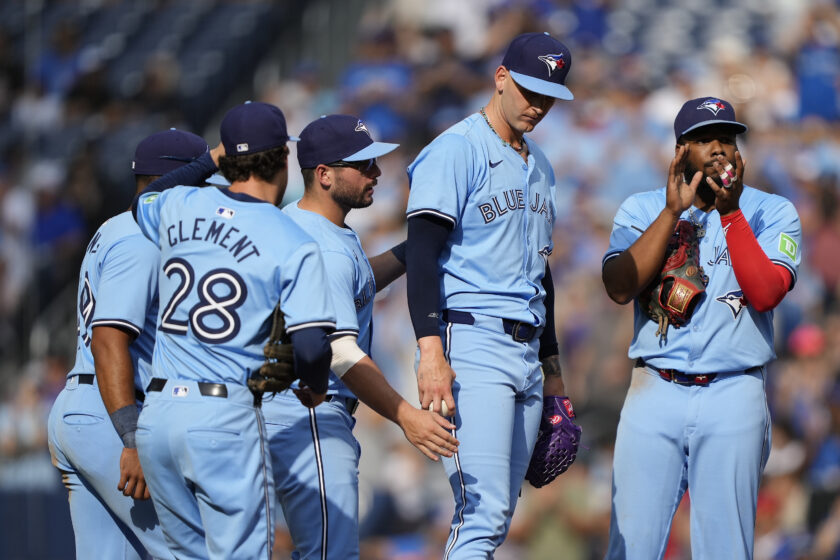The pros and cons of the new 18-game NFL schedule proposal

Here are the main pros and cons of the new 18-game NFL schedule proposal pondered over by NFL owners last week.
[sc name=”Ryan Honey Banner”]
Last week, NFL owners got together and proposed a new idea as far as the regular season schedule is concerned. For years, there have been discussions of the 16-game regular season format increasing to an 18-game schedule. This, of course, would decrease the four-game preseason schedule to two games.
However, players have been reluctant to play more games, as that would presumably lead to more injuries. Therefore, the owners came together with a proposal that the schedule would increase to 18 games with each player having a 16-game cap, according to Andrew Beaton of the Wall Street Journal.
Before people freak out about this, let’s get into some of the pros and cons should this proposal become a reality in the NFL.
The Pros
Well, first of all, it’s a money thing. Yes, whether you like it or not, it’ll always come back to the money aspect. It’s that simple.
If two regular-season games are added in place of two preseason games taken away, the revenue would be an estimated $1 billion. And it makes sense, too. Think about it, advertisements are without a doubt more expensive during regular-season games than preseason. More tickets are sold along with the major revenue from TV deals.
A billion dollars seems like a lot for just two extra weeks added on, but it’s fiscally possible. There’s no doubt about that.
Second, players can reach a compromise as far as the increased possibility of injury. When it comes to that, the risk of injury wouldn’t change, due to the fact that players are still playing 16 games per year no matter what occurs.
If there’s any way to fix the injury problem, it’s to get rid of Thursday Night Football. Of course, that decision may upset fans who’ve grown fond of the Thursday games. However, these games are so tough on the bodies of the players.
At that point (unless the previous week was a bye week), these players would be still recovering from their previous matchup on Sunday. Their bodies haven’t gotten back to full strength and in the condition to succeed in the game on Thursday. If you seriously want the injury/concussion problem to be fixed (which I can’t see why anyone wouldn’t want it fixed), you take away the Thursday matchups.
An additional positive to this new schedule would that it’d be a better deal for season-ticket holders for each team.
Growing up, my father had season tickets to the New York Giants every year up until I went off to college. Therefore, I’ve been to numerous games every single year, seeing them play in the old Giants Stadium and then the newer MetLife Stadium. That being said, I know a little bit about the price of going to these games as a season-ticket holder, despite it coming out of my father’s pocket and not mine.
You get tickets to 10 games: eight regular season and two preseason games. On top of that, you need to purchase what’s called a “Personal Seat License” which, by definition, “is a paid license that entitles the holder to the right to buy season tickets for a certain seat in a stadium.” And then you also need to purchase a parking pass in order to actually drive to and tailgate at the respective stadium.
“Don’t preseason games cost less than regular-season games, though?”
The answer is, sadly, no. The preseason tickets cost the same as the regular season, and when you go you’re not even seeing the starters for a great deal of time. Even if you go to the Week 3 preseason game, which is the so-called “dress rehearsal” where starters play into the third quarter. In that game, the starters are still only playing a little more than half of the game, if that.
An 18-game regular season/two-game preseason would add one more regular-season game and subtract one preseason game. Therefore, as a season-ticket holder, you’d get more for what you pay. You’d get more meaningful football for the same price, which is always awesome.
Oh, and the last pro: More football is better than less football. We all know that.
[sc name=”NFL Center”]The Cons
So here’s where it gets interesting. Because yeah, more football is obviously better. But when you consider all the negatives, you start to second guess the idea entirely.
The 16-game cap would add a whole extra decision to make when you’re a coach, personnel director, and general manager. You’d have to pick and choose which two games to sit your franchise quarterback, your dominant running back as well as your talented safety or linebacker.
Could you imagine the Green Bay Packers having to decide which games to sit Aaron Rodgers? Say they play the Detroit Lions, who are, say, 2-6 at the time and last in the division, so they decide to sit Rodgers. Do you realize it’s a whole different ball game for the Lions when now facing backup quarterback DeShone Kizer instead of a future Hall of Fame quarterback in Rodgers?
Or what about the Giants having to sit Saquon Barkley one game, so Wayne Gallman has to take the reins for that contest. Yeah, Gallman isn’t bad, but he isn’t Barkley. The Giants’ run game wouldn’t be nearly as effective that week.
That’s the main reason I have a problem with the new proposal. Fans would pay for tickets to see guys like Barkley, Rodgers, or Odell Beckham Jr. out in Cleveland. Then finding out they have to sit the game because the NFL has a game cap? I don’t like that aspect one bit.
It also would affect start steaks, which thus becomes an issue with the record books. No one would be able to reach or pass Brett Favre, who has the record with 297 straight starts.
Next, the preseason is cut in half, so the young players who are trying to make the team now have less time to impress coaches. Some of the later-round draft picks need those four preseason games to be able to come into their own and show coaches what they can bring to the table. Some coaches need those four games to really evaluate those respective players as well.
Two games may not be enough to cover those aspects.
Additionally, the NFL Players Association estimates that an 18-game season would decrease the average career span, per Beaton. The average is currently 3.3 years and would decrease to 2.8 years if the schedule were to be expanded. The minimum requirement for a post-career pension and health insurance is three years in the league. Thus, on average, NFL players wouldn’t play long enough to be eligible for those benefits.
Oh, and fans who pay for NFL Sunday Ticket and NFL RedZone, that would become a bit more expensive too. Your subscription would be two weeks longer, which would hurt your bank account just a little bit more. The NFL may not really care about that, but it’s definitely a negative worth considering when you’re a fan who gives the NFL some money every year.
Conclusion
Now, this proposal, in my opinion, probably won’t become a reality. And, if I were to make the decision, it wouldn’t become a reality at all.
Yeah, a compromise between more games but not more risk to injury is a total requirement. This proposal would make the league happy by gaining more revenue. It’d also make the players happy by not increasing the possibility of injury. However, there are numerous problems to it that the league cannot overlook.
With these numerous issues tied to this proposal, I’m not going to be someone who says this would work. Because at the end of the day, it wouldn’t.
[sc name=”Twitter Follow Link” text=”Ryan” username=”@RyanHoney22″ ] [sc name=”Giants Link Next” link=”https://elitesportsny.com/2019/07/09/most-new-york-giants-offseason-moves-will-eventually-make-sense/” text=”Most Of The Giants Offseason Moves Will Eventually Make Sense” ]





